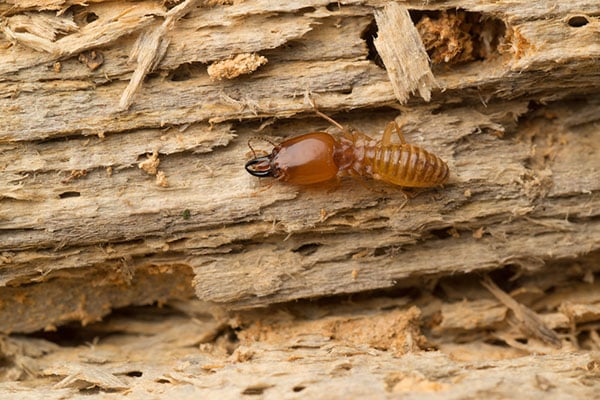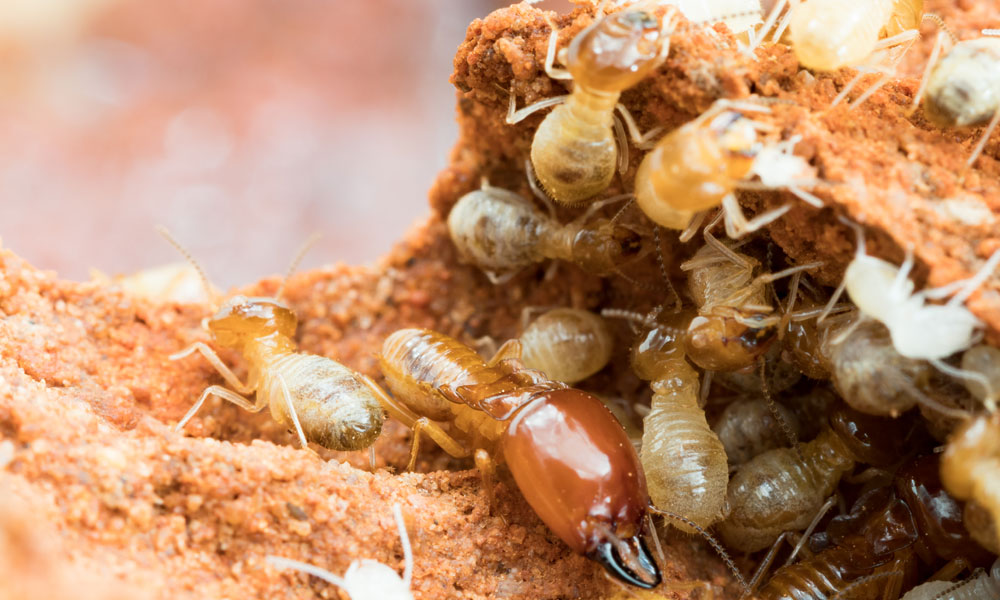Discovering termites in your home is alarming. Whether you’ve witnessed a termite swarm, found piles of discarded wings, or uncovered damage during a renovation, termites in your walls are a serious issue. These pests cause costly structural damage, and by the time they’re discovered, the infestation is often extensive. While professional extermination is usually the best solution, there are DIY methods that can help manage the problem. Here are five popular remedies to eliminate termites and insights on their effectiveness.
1. Does Soapy Water Kill Termites?
Termites rely on oxygen to survive, but instead of lungs, they breathe through their skin. Soapy water can disrupt this process by forming a film that suffocates them. Here’s how to use it effectively:
- Mix 6 tablespoons of liquid soap with 8 cups of water in a spray bottle.
- Shake the solution well and spray it directly on areas where termites are active.
- Repeat the process daily for several days to see results.
Soapy water is a non-toxic option that’s safe for homes with kids or pets, making it an excellent first line of defense. While it works well on contact, it’s not a long-term solution for eliminating a colony.
2. Does Vinegar Kill Termites?
White vinegar is another effective, natural termite killer. You can use it in various ways, including:
- Straight vinegar applied directly to termites.
- Diluted vinegar and water in a 1:1 ratio.
- A mix of vinegar and lemon juice in a 1:2 ratio.
- A solution of vinegar with a small amount of oil in a 1:4 ratio.
Spray any visible termites or suspected areas of activity. Like soapy water, vinegar kills termites on contact. However, remember that termites are often hidden deep within walls or wood, so you may not be addressing the entire infestation.

3. Orange Oil for Termites
Orange oil, containing d-limonene, is a natural pesticide that effectively kills termites. It’s readily available and easy to use:
- Apply orange oil to areas where termites are active using a cloth or rag.
- Inject the oil into cracks, crevices, or holes in walls where termites may be hiding.
- Reapply the oil for several days to ensure that more termites come into contact with it.
Orange oil is non-toxic and environmentally friendly, but its reach is limited. It works well for small, localized infestations but may not eliminate a large colony.
4. Water Your Yard to Flood Termite Nests
Subterranean termites build their nests underground, often outside your home. Flooding their nest with water can disrupt the colony and potentially kill the queen, the key to halting reproduction.
- Use a garden hose to saturate the ground near known termite nests or tunnels.
- Water your yard generously to flood subterranean tunnels termites use to access your home.
Flooding can kill termites and cause their tunnels to collapse, limiting access to your house. However, this method depends on knowing the precise location of the nest and may not be effective against colonies deep underground.
5. The Wet Cardboard Trick
Termites feed on cellulose, a compound found in wood and cardboard. You can use this to your advantage by setting a trap:
- Wet a piece of cardboard and place it near areas of termite activity.
- Leave the cardboard for several days to attract termites.
- Once termites are concentrated on the cardboard, remove it and treat it with one of the above methods, such as soapy water or vinegar.
This method is inexpensive and can help you monitor termite activity, but it’s not a standalone solution. You’ll need to combine it with other remedies for lasting results.
Why Do Termites Keep Coming Back?
While these DIY methods are effective at killing termites on contact, they don’t guarantee permanent eradication. Here’s why:
- Massive Colonies: Termite colonies can house anywhere from 60,000 to over a million individuals. Killing thousands may seem like progress, but it’s a drop in the bucket compared to the entire colony.
- Hidden Nests: Termites are experts at hiding. Even if you’ve eliminated visible termites, others are likely working undetected within walls or underground tunnels.
- Reproductive Resilience: Termite queens can produce thousands of eggs daily, allowing the colony to recover quickly.
When to Call a Professional
While DIY remedies can help control termites temporarily, professional pest control is often the most effective long-term solution. Pest control in new york experts use specialized tools and treatments to target entire colonies, including the queen. They can also identify and address structural vulnerabilities that may attract termites in the future.
If you’ve tried DIY methods without success or suspect a severe infestation, it’s time to bring in the pros. Look for a licensed pest control service with experience in termite extermination.
Prevention Tips to Keep Termites at Bay
Once you’ve eliminated termites, take these steps to prevent their return:
- Remove Wood Debris: Clear away wood piles, stumps, and other cellulose-rich materials near your home.
- Fix Leaks: Repair leaky pipes or roofs that create moisture, which attracts termites.
- Seal Cracks: Close gaps in your home’s foundation or walls where termites could enter.
- Maintain Ventilation: Properly ventilate crawl spaces and basements to reduce humidity.
By combining prevention strategies with professional extermination when necessary, you can protect your home from termites and their costly damage.

